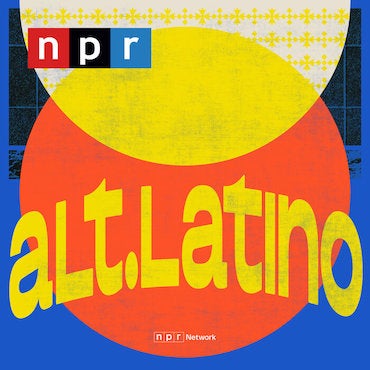Eroding beaches weaken Puerto Rico’s storm defenses
More than half of the island's beaches are losing sand. That's a problem when most of the population lives along the coast.
Listen 7:28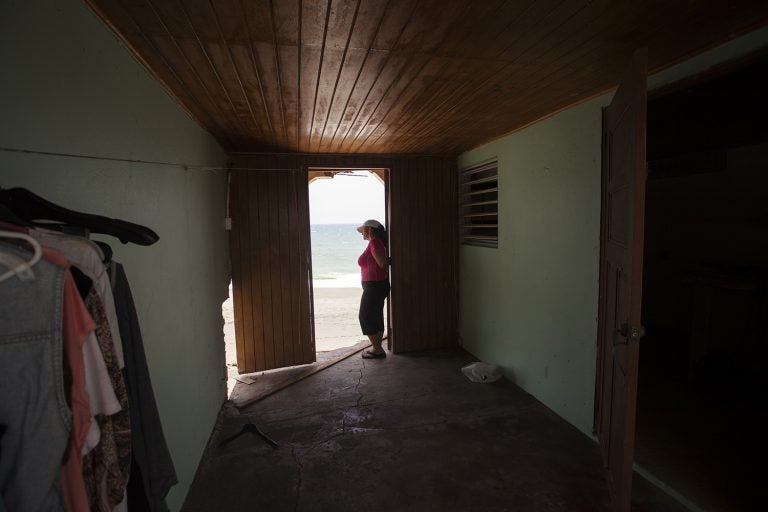
Rosa Elena Mastache Dominguez looks out at the beach through a door that once led to the back of her family home. Hurricane Maria shrunk the beach behind her home, then another storm brought waves that destroyed the structure. (Irina Zhorov/WHYY)
Hurricanes Irma and Maria did a lot of damage in Puerto Rico. The storms destroyed homes and other structures, especially around the perimeter of the island. They also deteriorated beaches. That’s a problem because compromised beaches make structures built on them even more vulnerable in future natural disasters.
“We never thought the sea would reach us. Never.” – Rosa Elena Mastache Dominguez.
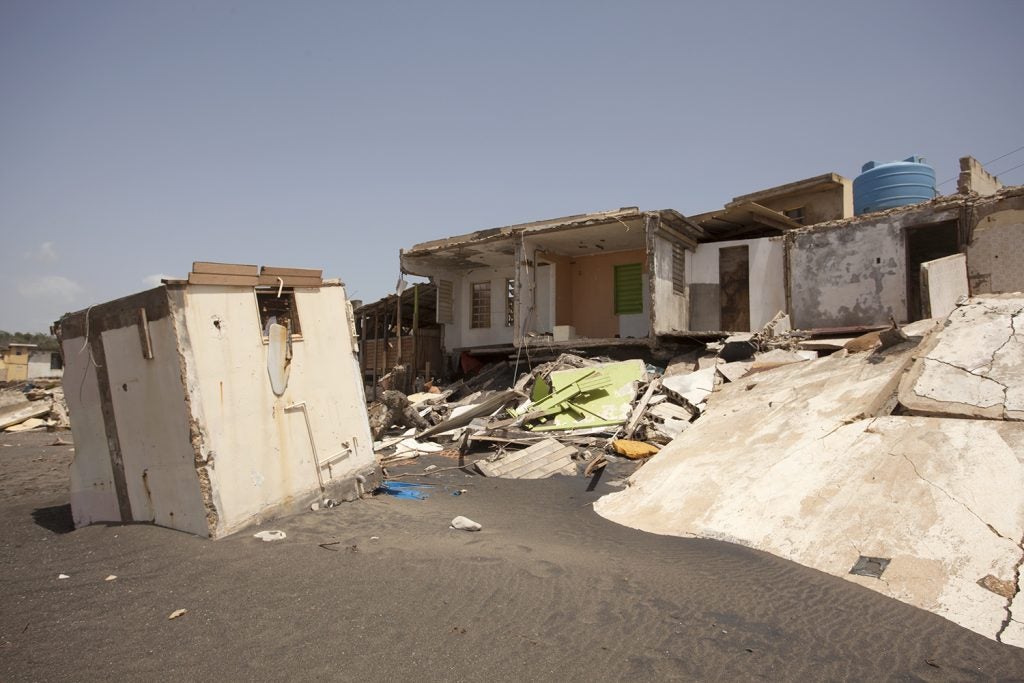
In February, a weather system whipped up huge waves — and brought that vulnerability sharply into focus for the tiny community of La Boca, on Puerto Rico’s north central coast. Without the wide flat beach to absorb the energy of the swells, the waves hit a row of beachfront homes and wrecked them.
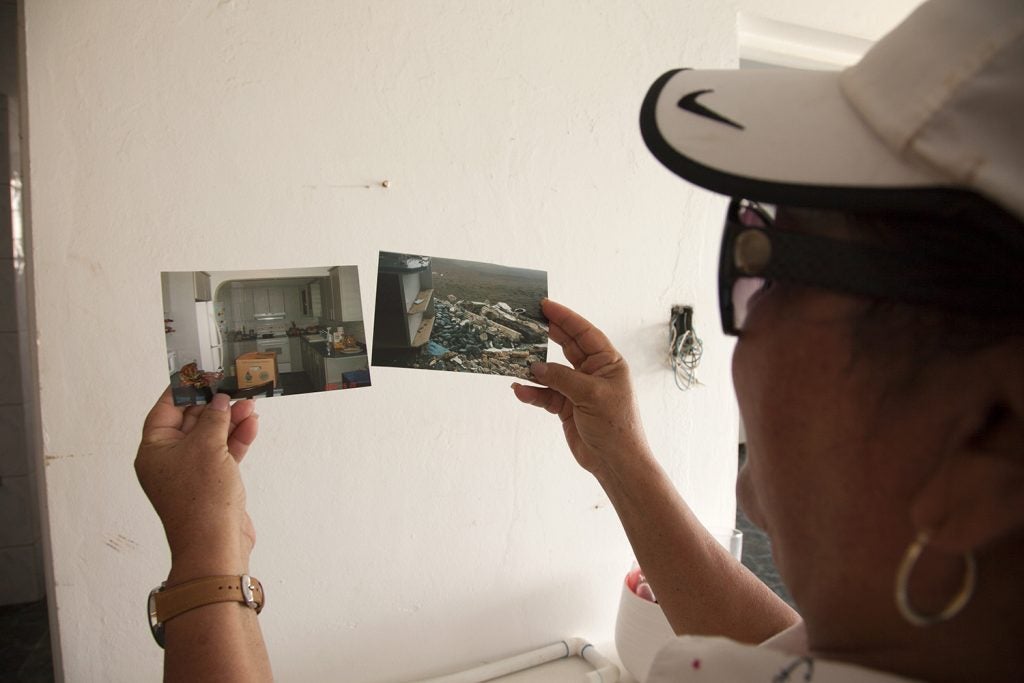
“I think rebuilding is a risk. Within 50 years, it’s going to happen again. There’s a saying: What came from the sea, will return to the sea.” – Rafael Rosario Quintero.
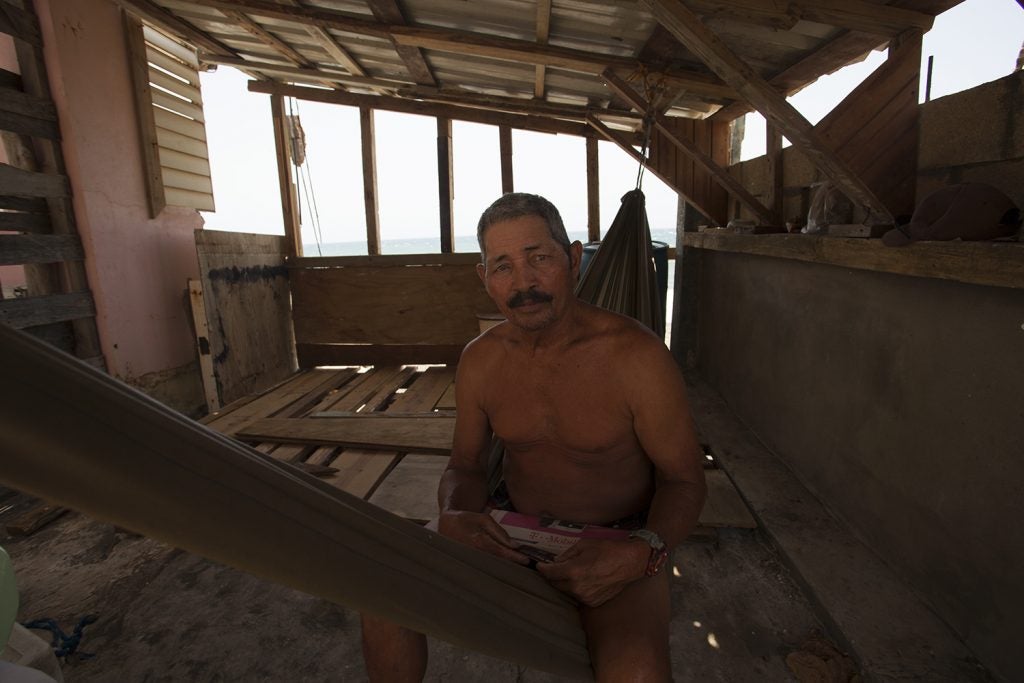
“If sea level rise is increasing at an accelerated pace, and we’re losing beaches also at an accelerated pace, and we humans made ourselves vulnerable by building so close to the coastline, obviously what were formerly natural processes … are now social problems.” – Ernesto Diaz, director of the Puerto Rico Coastal Zone Management Program.
La Boca’s struggles are representative of a larger problem on the island. Even before the storms, erosion affected more than half of Puerto Rico’s beaches. The beach shrinkage is driven in large part by land use, in particular construction on the beaches, which disrupts natural sand movement. Much of the critical infrastructure — power plants, telecommunications, sanitary systems — is built along the coast and most people live there. Puerto Rican laws prohibit new construction in the coastal zone, but much of what’s there preceded the laws. Now La Boca and Puerto Rico are starting to reckon with the fallout from recent storms and the inevitable loss from future ones.
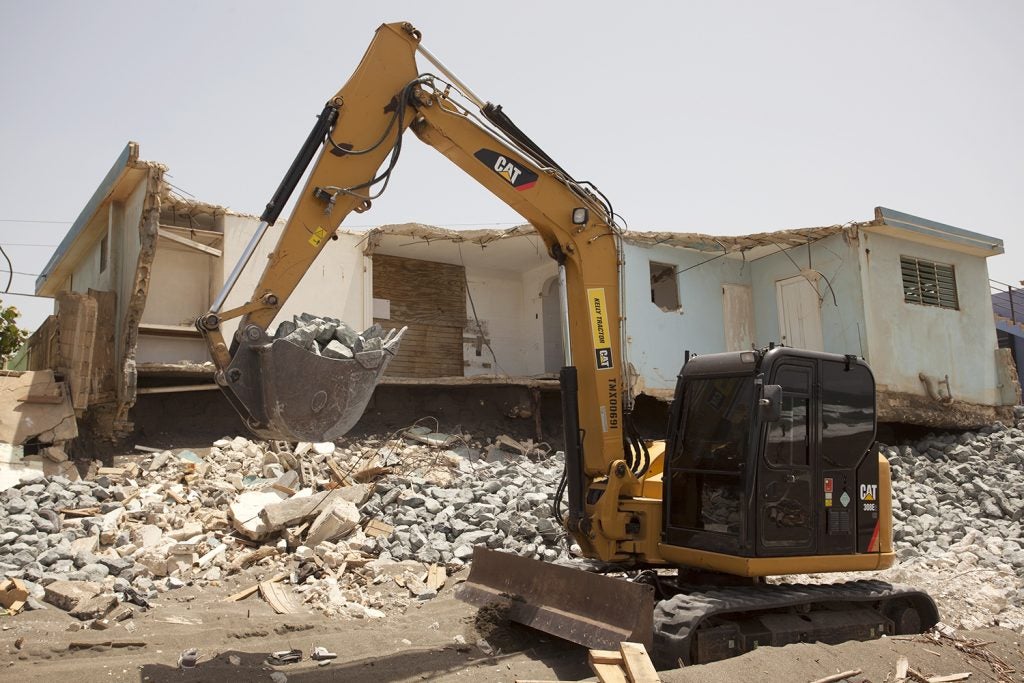
WHYY is your source for fact-based, in-depth journalism and information. As a nonprofit organization, we rely on financial support from readers like you. Please give today.
